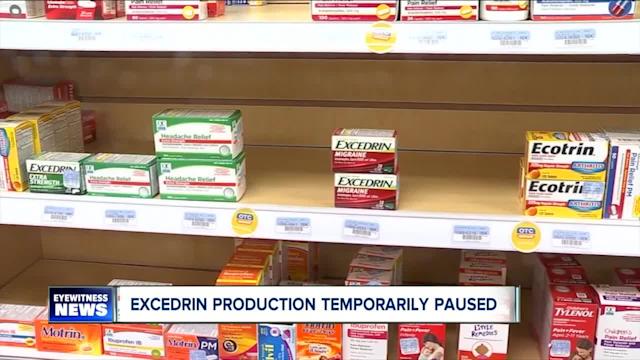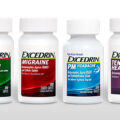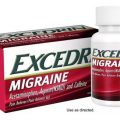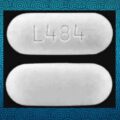Excedrin has been a leader in headache relief for more than 50 years, and the range of Excedrin products contains varying ingredients. Excedrin is a pain relieving drug which contains mainly acetaminophen, aspirin as well as other active ingredients. Aspirin and acetaminophen relieve pain by keeping your body from making certain natural substances. Caffeine in some products helps increase the effects of aspirin and acetaminophen. It is used to temporarily relieve minor aches and pains due to: headache – a cold – arthritis – muscular aches – toothache – premenstrual & menstrual cramps.
The main active ingredient in this drug is acetaminophen, an analgesic and an antipyretic drug. It’s not an NSAID. In other words, it’s not an anti-inflammatory drug. It does not help reduce swelling or inflammation. It works by blocking cyclooxygenase (COX) enzymes. These help to form prostaglandins, which are pain- and inflammation-mediating signaling molecules. This would make acetaminophen similar to aspirin, or to ibuprofen and other nonsteroidal anti-inflammatory drugs (NSAIDs).
Why is there a shortage of Excedrin?
According to a statement by the manufacturer of the Excedrin range (GlaxoSmithKline), they have halted production of Excedrin because of inconsistencies in how they transfer and weigh ingredients.
Product impacted: specific lots of Excedrin® Migraine Caplets/Geltabs, Excedrin® Extra Strength Caplets, Excedrin® PM Headache Caplets, and Excedrin® Tension Headache Caplets available in 50, 80, 100, 125, 200, 250 and 300-count bottles.
Product NOT impacted: 24-count bottles of Excedrin® Extra Strength caplets and Excedrin® Migraine caplets and geltabs.





